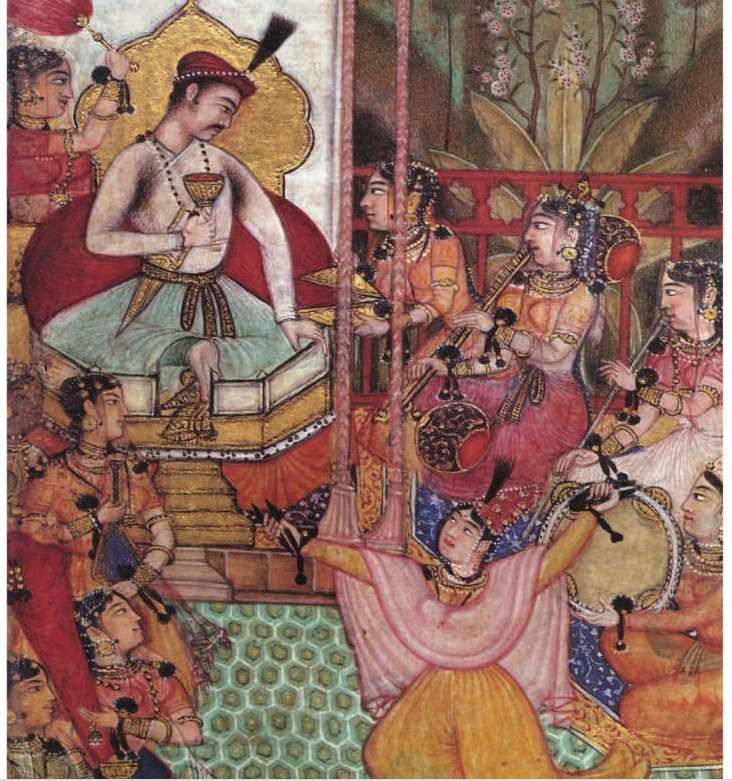FWP:
SETS
GATHERINGS: {6,3}
GAZE: {10,12}
MUSIC: {10,3}
WARNINGS: {15,15}
This is the fifth verse of a seven-verse verse-set; for discussion of the whole verse-set, see {169,6}.
The chang was a kind of Persian harp. For more information about it, see {321x,4}.
Now the glory of the senses reaches a crescendo, and we party-goers
almost literally think we're in heaven. We're almost translated out of the realm
of the evening gathering entirely. Which is just as well, because naturally
we're heading for a fall.

Nazm:
[No comments on this particular verse.] (190)
== Nazm page 190